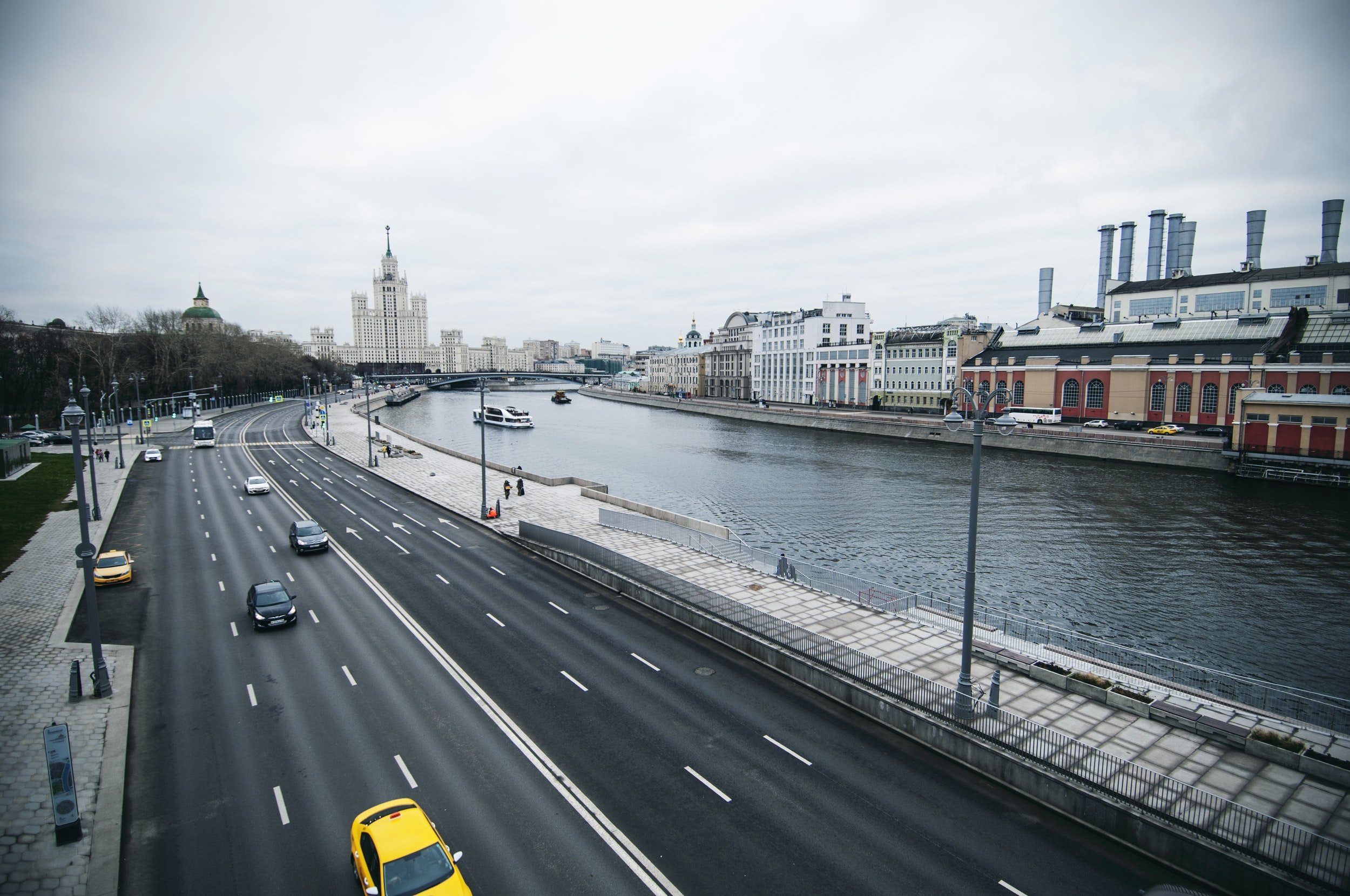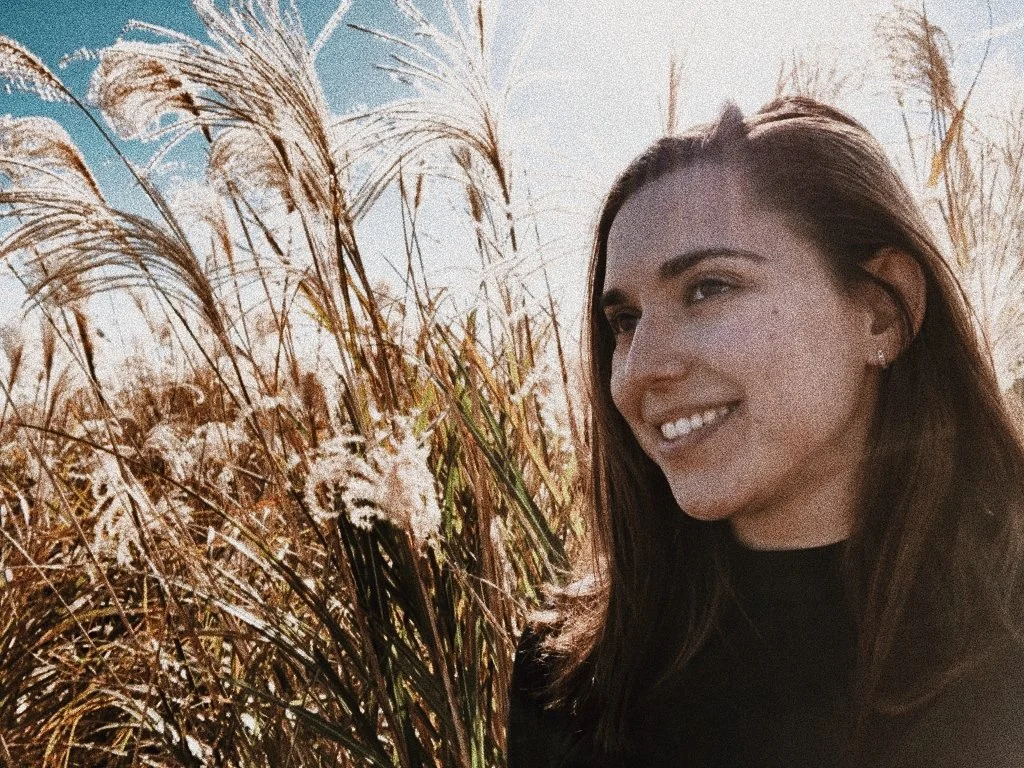
Vanessa Saradjzada
Vanessa on the interconnectivity of Russian language and culture seen as a collective memory.
The Story of Vanessa
With the Russian language as the common denominator for Vanessa Saradjzada and her parents, Vanessa discusses the similarities and differences between the Russian and Ukrainian language, as well as how the Russian language became a lingua franca for a majority of the interregional marriages during the existence of the Soviet Union up till 1991.
Interview conducted by Yoshi Emanuël
Vanessa, could you introduce yourself to our readers?
Of course. My name is Vanessa Saradjzada and I study Medicine at the VU University in Amsterdam. I am currently in my fifth year, closely nearing the end of the programme. My mother is originally from Zaporizja, Ukraine, and my father from Afghanistan. Even though my mother grew up with the Russian and Ukrainian language and my father with Farsi, Russian is the common denominator and therefore the main language we speak at home. Furthermore, I also speak English, Dutch and German.
There is an insightful video on YouTube by the language channel ‘Langfocus’ on the differences between the Russian and Ukrainian languages. The video explains that Russian and Ukrainian both derive from the group of the East Slavic languages (Belarusian being the third language) and therefore share similarities in grammar use and writing systems. However, the video also elaborated on the similarities between Ukrainian and Polish, a West Slavic language. Apparently, there are quite a few lexical cognates between Ukrainian and Polish. I am curious to know about your perception of these similarities and differences.
Geographically speaking, my mother grew up in the Zaporizja Oblast, which is located in the East of Ukraine. She could really tell that this region is strongly Russian influenced. An influence that permeates through daily life and is expressed in the dominant use of the Russian language within this region. An interesting observation on my part would be to see a stronger connection between Polish and Ukrainian concerning the pronunciation and rhythmic flow of language use. Of course, this becomes more evident the closer you get to the border with Poland.
What kind of rhythmic flows in spoken language are you referring to?
I would say it is a bit more melodic, especially within the ‘jeu’ tones. It is rather hard to describe this by jotting it down on paper, but I believe that the YouTube video you referred to at the beginning encapsulates the essence of those melodic rhythmic breakdowns.
Now that we discussed your mother’s linguistic background, I am also curious to know how Russian became the binding language in your household, especially knowing that your father is from Afghanistan.
There is a bit of history involved. The Soviet-Afghan war was a conflict throughout the 1980s in which the Soviet Union intervened in support of the Afghan communist government in its conflict with anti-communist Muslim guerrillas during the war. They remained in Afghanistan until mid-February 1989. In essence, Afghanistan was still considered as an independent nation, comparable with other Central-Asian nations, such as Tajikistan and Uzbekistan.
But then again, my father managed to achieve great results during his time in high school. It used to be the normal course of practice to go into the military after the completion of high school. There were lots of tensions in nearby regions, such as the establishment of the Iron Curtain until the very end of the Cold War (1991). Fortunately, his good grades allowed him to get a scholarship of his own choice, albeit at a university in the Soviet Union. He opted for the Zaporizhzhya State Medical University in my mother’s hometown, where they met each other during their studies. The rest is history!
That explains the rather peculiar intertwinement of two different cultures. Was this a commonality in Soviet times?
Well, yes. It was actually quite common for these interregional marriages to occur. It wouldn’t be a surprise to see Latvian-Azeri or Tajik-Russian marriages, for instance. Of course, there were lots of men like my father who got a similar opportunity to study abroad and start a family somewhere else in the Soviet Union. Actually, my parents and I do know some other Afghan-Russian and Tajik-Russian families in Amsterdam. In addition, I believe that these interregional marriages also portray a mixture of (national) identities.
For sure. Kazakhstan comes to my mind.
I totally get that. Kazakhstan exemplifies the influences of how Russian (regardless of being part of the Soviet Union or not) still persist and hold on to their identity in Central Asia.
And perhaps this is also a bit harder to grasp for European people.
Definitely. Moreover, I think that lots of Europeans hold on to this specific visualisation of Russia being ‘just’ European Russia. Of course, all the federal cities are located within European Russia, such as Moscow and Saint Petersburg. Just dive a bit deeper into Central Russia and you will find a set of totally different customs, cultures, and traditions in which the diversity in itself is strengthened by the multitude of other dialects and languages. Gastronomically speaking, you can also see how the different cuisines are heavily influenced by Korean, Mongol or Turkish history.
“I think that lots of Europeans hold on to this specific visualisation of Russia being ‘just’ European Russia. Of course, all the federal cities are located within European Russia, such as Moscow and Saint Petersburg. Just dive a bit deeper into Central Russia and you will find a set of totally different customs, cultures, and traditions in which the diversity in itself is strengthened by the multitude of other dialects and languages. Gastronomically speaking, you can also see how the different cuisines are heavily influenced by Korean, Mongol or Turkish history.”
Vanessa Saradzjada
It starts to make more sense that the Russian language binds different regions so much, as this shows with your parents as well. Even though ex-Soviet states are fully independent, they hold this connection to Russian culture and language (albeit working in both ways). I believe this is also reflected within the small community in Amsterdam you mentioned earlier in this interview.
Indeed. It isn’t as big as, for instance, the Jewish community in Amsterdam. It is more that my parents know other couples of Afghan, Tajik, and Russian descent. In that sense, it is also kind of funny that my parents’ story is not unique in itself. There are more people whose lives have taken a similar turn, either with a scholarship or by travelling within the Soviet Union.
When we go back to the rhythmic flows we discussed earlier, it always raises awareness of the ideologies of gender and language. How would this apply to the Russian and Ukrainian languages?
I notice that women (especially concerning the Russian language) have a very distinct way of talking which is, very often, accompanied by a lot of diminutives by default.
Would you say this is something emerging within the last couple of years, or rather a phenomenon ingrained in a longer-lasting tradition?
I think it is mostly derived from a more conservative ideology, because yes, if you don’t use any diminutive words, then maybe you could convey more authority as it is being perceived by the general public. However, it doesn’t match with the very stereotypical feminine look, creating this kind of mismatch.
So, perhaps these ideologies of gender and language are somewhat attributed to the kind of outward appearance they want to convey?
That could definitely be the case. Of course, everything should be taken with a pinch of salt. In the end, Russians and Ukrainians are very emotive and expressive people when it comes to communicating their feelings. These undertones can also be seen in their affection for expressive forms of art and sports, such as figure skating and ballet. I think the term ‘Russian soul’ is a fitting reference to the uniqueness of the Russian national identity. Many writers such as Nikolai Gogol, Leo Tolstoy, and Fyodor Dostoyevsky offer descriptions of the Russian soul.
Inspired after reading this interview with Vanessa?
To Watch: Afghanistan: The Wounded Land (NPO1)
“Afghanistan: The Wounded Land” looks at six decades of Afghan history through the eyes of those who were there. Also available elsewhere online (for instance on Amazon Prime)
To Read: All hail Manizha, the Tajik-Russian musician rewriting the rules on what it means to belong. (The Calvert Journal)
The singer actively tackles the intolerance and racism that particularly affects immigrants from Central Asia.
To Watch: «А что я сделала, чтобы помочь?» / о проблеме домашнего насилия (YouTube)
Multiple perspectives on the problem of domestic violence against women in Russian society.

Interested in more content? You can find EQ on:

